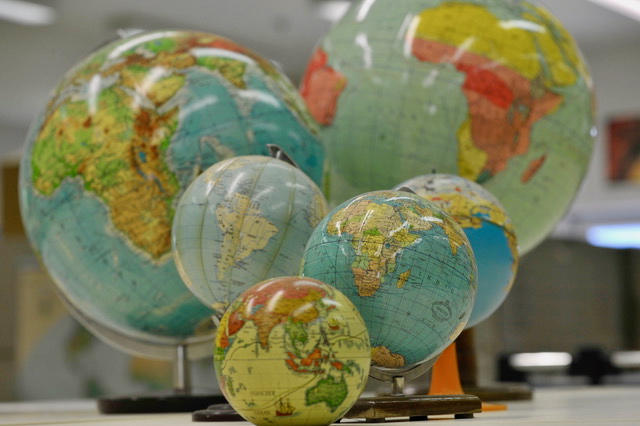Inclusive knowledge production with the Global South
A panel discussion of the Berlin Center for Global Engagement dealt with equal collaboration between the “Global North” and the “South”
Mar 05, 2021
Around 80 participants took the opportunity to ask their questions about current developments in the internationalization of the academic landscape.
Image Credit: Bernhard Wannenmacher
“Debating the future of inclusive knowledge production with the 'Global South'” was the title of a panel discussion organized by the Berlin Center for Global Engagement (BCGE) at the Berlin University Alliance (BUA) as a virtual event in late February. The well-attended panel discussion took place as part of the lunch-time debates “Watersheds of Internationalization” at Freie Universität Berlin, which is a series of debates highlighting developments in the internationalization of the scientific landscape. Around 80 participants took the opportunity to ask their questions about current developments in the internationalization of the academic landscape.
Professor Joybrato Mukherjee, president of the Justus-Liebig-Universität Gießen (JLU) and president of the German Academic Exchange Service (Deutscher Akademischer Austauschdienst, DAAD), and Eloísa Martín, professor of sociology at the United Arab Emirates University and vice president of the International Sociological Association (ISA), were invited to discuss the topic of inclusive internationalization and knowledge production with researchers from the “Global South”. The discussion was moderated by professor Verena Blechinger-Talcott, vice president for International Affairs at Freie Universität Berlin.
More diversity in decision-making bodies, funding organizations, and the academic landscape in general
In her opening statement, Eloísa Martín addressed the issue of decision-making structures in the international academic context. She emphasized that actors from the “Global North” would decide the agenda in research partnerships and pleaded for more diversity in decision-making bodies, funding organizations, and the academic landscape in general. In order to meet global challenges, she said, joint knowledge production, including the involvement of local communities not affiliated with academia, is essential. The hierarchical relationships between researchers from the “Global North” and the “South” should be given greater attention.
Joybrato Mukherjee remarked that the pandemic has accelerated the production of digital knowledge, pointing out that digital offers partly benefit groups that previously rarely had a chance to access academic offers. Furthermore, the pandemic shows that universities should rather focus on selected but intensive cooperations instead of on many international partnerships and thus build resilient networks. Regarding the structure of these networks, Eloísa Martín pointed out that they must be of equal standing and that those involved in cooperation from the "Global South" should also be included in financial decision-making.
China's role in organizing international research cooperation was also discussed. Eloísa Martín emphasized that China is building a strong university education system that, like the U.S. system, is geared toward university rankings and a commitment to excellence. Joybrato Mukherjee floated the idea that the leading position of European and U.S. research in international comparisons should not be taken for granted. He called for a stronger focus on cooperation with African countries, not from a colonialist perspective, but with the realization that Europe and its neighboring geographic continent face similar challenges.
What are the most important measures to enable cooperation of equal standing?
Finally, the participants were asked for their opinion: In your view, what are the most important measures to enable cooperation of equal standing between the “Global North” and the “South”? The majority of those present were in favor of increased funding for institutional partnerships as well as topic-specific research networks involving various institutions. However, long-term funded professorships for researchers from the “Global South” and joint teaching programs were also mentioned. Joybrato Mukherjee saw these assessments as an acknowledgement of the DAAD programs and emphasized that established structures were important for internationalization, but that the individuals in the academic landscape played a crucial role and would move internationalization forward.
The BCGE event team was particularly pleased with the lively and inspiring debate, which provided deep insights into the opportunities and challenges for knowledge production in and with the “Global South”.

